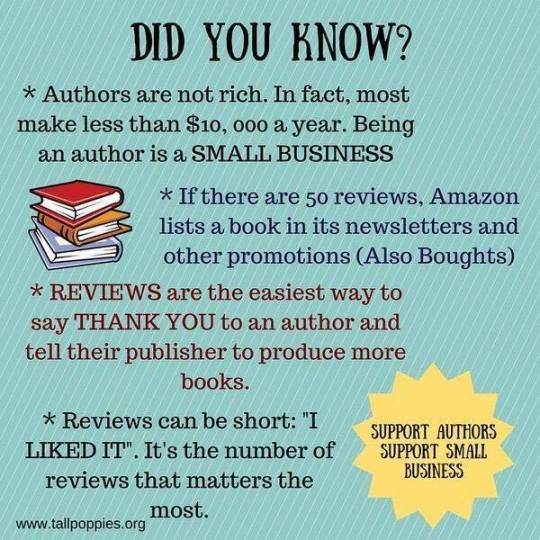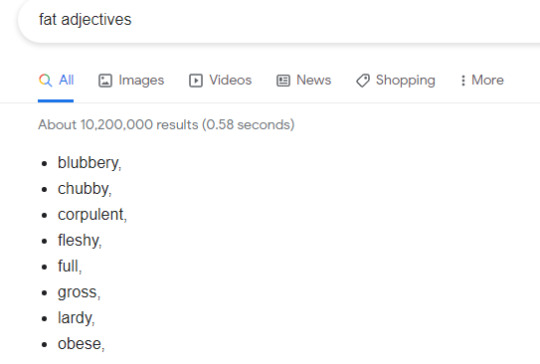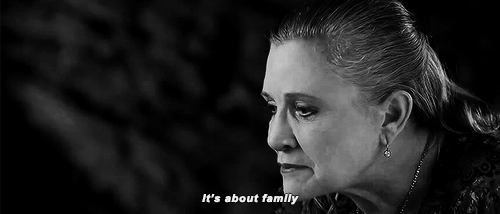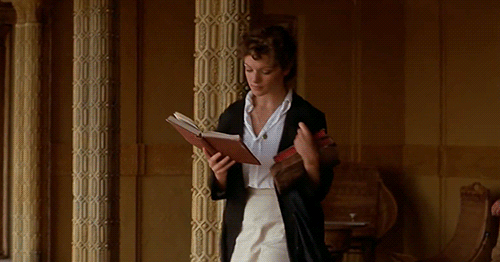Fantasy author | The Dying of the Golden Day | The Stroke of Thirteen | The Shadow of the Endless Night | Empyrea and Other Stories
Don't wanna be here? Send us removal request.
Text
It's good and cool to give your characters a single simple, straightforward, non-urgent, super-achievable goal that shouldn't really cost anything or hurt anyone, make that the driving factor for most of their decisions, and then have the Plot do everything in its power to stop them.
24K notes
·
View notes
Text
I love works of fiction that are like, high stakes and thought-provoking, but also at the same time balls out ridiculous
18K notes
·
View notes
Link
I’m giving away some copies of my epic fantasy novella! All you need is an email to enter (so I can contact you for your mailing address, not so I can send you any junk mail)!
#books#fantasy books#booklr#reading#fantasy#epic fantasy#epic fantasy books#indie authors#fantasy authors#book giveaway
3 notes
·
View notes
Text

Hey, Booklr! My novella comes out this week, and I’m offering reviewers and readers free e-copies. All you have to do is claim a copy at the link below.
Blurb: When Nessa and her fellow priestesses are abducted from their temple by bounty hunters, Nessa is the only one to escape. Unable to return to the sole home she’s ever known, she is forced into the great wide world, where she will either forge her own path or leave her life up to chance. Along the way, she just might find a family, find herself, and find out what “home” truly means.
More Details: There’s no obligation to review! But if you enjoy it, I hope you consider leaving one on your preferred reviewing site.
Prolific Works Link: https://claims.prolificworks.com/free/TXS8kqUP
#booklr#ebooks#fantasy#epic fantasy#reading#amreading#books#arcs#authors of tumblr#novellas#book reviews#free books
13 notes
·
View notes
Text
Got a new book coming out!
It’s a standalone novella set in the world of my epic fantasy series. Check out the blurb below.
Blurb: Sometimes, only when we’re lost can we discover who we truly are. When Nessa and her fellow priestesses are abducted from their temple by bounty hunters, Nessa is the only one to escape. Unable to return to the sole home she’s ever known, she is forced into the great wide world, where she will either forge her own path or leave her life up to chance. Along the way, she just might find a family, find herself, and find out what “home” truly means.
You might like it if you like: - female protagonists - pirates - coming of age stories - quests - light on magic
It releases on February 28th, and you can preorder it here:
https://www.amazon.com/Arms-Restless-Sea-Heartfriends-Novella-ebook/dp/B0BW74Z2XC/

6 notes
·
View notes
Text
As a fiction writer, I don’t speak message. I speak story. Sure, my story means something, but if you want to know what it means, you have to ask the question in terms appropriate to storytelling. Terms such as message are appropriate to expository writing, didactic writing, and sermons — different languages from fiction.
[…]
I’m not saying fiction is meaningless or useless. Far from it. I believe storytelling is one of the most useful tools we have for achieving meaning: it serves to keep our communities together by asking and saying who we are, and it’s one of the best tools an individual has to find out who I am, what life may ask of me and how I can respond.
But that’s not the same as having a message. The complex meanings of a serious story or novel can be understood only by participation in the language of the story itself. To translate them into a message or reduce them to a sermon distorts, betrays, and destroys them.
— Ursula Le Guin, A Message About Messages
5K notes
·
View notes
Photo










Octopus Sculptures
Sahasa on Etsy
10K notes
·
View notes
Photo

164K notes
·
View notes
Text
Challenging Fatphobic Language in Writing: Some Alternative Vocabularies
So I’m currently working on a short story for an explicitly fat-positive anthology, and it’s making me realize just how little language I have readily at hand for describing large bodies in positive terms!
Putting aside for a moment the whole debate over HAES and fat positivity and everything else – and if you clown on this post, I’m simply going to block you, that’s not what we’re here for – sometimes you just want to write a story with a fat person in it and you need some adjectives/descriptive language that isn’t overtly gross and/or fetishistic.
Well, I’ve got you, fam. I have compiled this handy list of descriptive terms and phrases for describing big bodies with positive connotations.
Why am I doing this?
Because this:

And this:

And frankly, we all deserve better. So let’s go.
Positive (and Neutral) Adjectives for Fatness
Abundant
Ample
Big
Broad
Buxom
Considerable
Curvy
Full
Generous
Heavy
Large
Luscious
Plentiful
Plump
Replete
Robust
Round
Rubenesque
Soft
Solid
Stocky
Substantial
Thick
Voluptuous
Zaftig
Movement Verbs Evoking Fatness
Amble
Bounce
Lope
Mosey
Pad
Plod
Pound
Ramble
Scoot
Shuffle
Trundle
Some Points to Keep In Mind
A big part of challenging fatphobia in writing is inverting or subverting stereotypes. Here are a few lazy/played-out tropes and things to think about:
Fat = Greedy I think we can all agree at this point that there are better ways to show greed – such as excessive wealth, entitlement, selfishness, and so forth. There is really no need to use fatness or gluttony as a metaphor for these concepts. Just write your greedy character doing greedy things and resist the urge to make them also be fat. If you need a strong visual metaphor, go for opulence and wealth instead.
Fat = Gross A ton of media, especially horror, loves making fat people slovenly, smelly, covered in food stains, farting and belching, etc. etc. So if you want a more positive representation, just presenting the character as clean, well-dressed, tidy, etc. actually goes a very long way. Consider playing against type by making your fat character dapper or fastidious about other elements of their appearance, like their hair, or wearing very nice custom-fitted clothes (or even just “dressing up” a bit more than everyone else).
Fat = Out of Shape Yes, absolutely, many fat people are also out of shape couch potatoes. But so are a lot of skinny people. And fat people absolutely can be athletic – go google “fat athletes” for several lists of them if you don’t believe me! Sure, you probably won’t find a ton of fat long-distance runners, but you’ll definitely find plenty of hefty weight lifters, fighters, folks with physical jobs, etc. A lot of super muscular people are also carrying extra fat, and that is in fact way more common and natural than the super-defined, well-cut muscles you see on TV. Keep that in mind the next time you’re writing an army of strong hand-to-hand combatants – they’re likely to be physically big, not in a bulging muscle He-Man way but more of an “absolute unit” way. Keep in mind, too, that even regular folks packing extra pounds will often tend to be a lot stronger (on account of spending every day carrying extra weight!) You can be fat and graceful, fat and strong, fat and with endurance. Just something to keep in mind.
Fat = Pig Pigs have a reputation for being huge, dirty, smelly, garbage-eating slobby creatures, and “disgusting fat pig” and “porker” and their ilk have been insults against big people for a long time. Of course, in reality pigs are also super smart, highly social (and fucking terrifying) but that’s not usually waht gets invoked when people think of them! Really, avoiding animal language when talking about people is often a good idea (since animal comparisons can be dehumanizing), but if you are going to evoke an animal, go with something else. Like a seal (super cute, very graceful in its natural environment) or a bear (big and solid and intimidating) or a bull elk (thick and majestic).
Fat = Ugly Fat people can be beautiful. I mean, sure, beauty is in the eye of the beholder, and inner beauty is a thing and all that – but that’s not what I’m talking about. I mean that fat bodies are great! They’re warm and soft and huggable. They’re big and solid and comforting. They can be strong and protective. They can be super-feminine and curvy. Cute as a button or powerful and demanding with their presence.
Obviously dismantling fatphobia is a whole big (ha, ha) topic all on its own, and there’s a ton more to think about. But this is at least something to get you started!
Context matters a whole lot in description – words can be positive or negative based on how they’re utilized! But these are at least some terms intended to be a bit less loaded with negative baggage than those often used in less flattering descriptions.
Have you read a book with a fat character who had a great or interesting description? Please reblog, I’d love to see how other authors have handled it!
12K notes
·
View notes
Link
The first book in my epic fantasy series is free on kindle today through Sunday, April 3rd! You might dig it if you like:
- epic fantasy, but with way more women - deep friendships (think Lan and Moiraine in Wheel of Time) - cultures clashing - poetry - characters generally trying to do some good - some made-up curse words
#epic fantasy#fantasy with women#female characters#fantasy books#books#reading#kindle#free on kindle#ebooks#the heartfriends
2 notes
·
View notes
Text
Tips for Writing a Difficult Scene
Every writer inevitably gets to that scene that just doesn't want to work. It doesn't flow, no matter how hard you try. Well, here are some things to try to get out of that rut:
1. Change the weather
I know this doesn't sound like it'll make much of a difference, but trust me when I say it does.
Every single time I've tried this, it worked and the scene flowed magically.
2. Change the POV
If your book has multiple POV characters, it might be a good idea to switch the scene to another character's perspective.
9/10 times, this will make the scene flow better.
3. Start the scene earlier/later
Oftentimes, a scene just doesn't work because you're not starting in the right place.
Perhaps you're starting too late and giving too little context. Perhaps some description or character introspection is needed before you dive in.
Alternatively, you may be taking too long to get to the actual point of the scene. Would it help to dive straight into the action without much ado?
4. Write only the dialogue
If your scene involves dialogue, it can help immensely to write only the spoken words the first time round.
It's even better if you highlight different characters' speech in different colors.
Then, later on, you can go back and fill in the dialogue tags, description etc.
5. Fuck it and use a placeholder
If nothing works, it's time to move on.
Rather than perpetually getting stuck on that one scene, use a placeholder. Something like: [they escape somehow] or [big emotional talk].
And then continue with the draft.
This'll help you keep momentum and, maybe, make the scene easier to write later on once you have a better grasp on the plot and characters.
Trust me, I do this all the time.
It can take some practice to get past your Type A brain screaming at you, but it's worth it.
So, those are some things to try when a scene is being difficult. I hope that these tips help :)
Reblog if you found this post useful. Comment with your own tips. Follow me for similar content.
53K notes
·
View notes
Text
Me ………….
*looks up at the night sky* *sees more stars than usual* *mood immediately lifts by 93%*
99K notes
·
View notes
Photo





We miss you, Princess.
38K notes
·
View notes
Text
guy: so yeah, like, its Alice In Wonderland but with a dark- me: [already asleep]
145K notes
·
View notes
Photo



1K notes
·
View notes
Text
It’s been twenty years and I am still not over the fact that Narrator Gen didn’t lie once in The Thief. Not once.
253 notes
·
View notes
